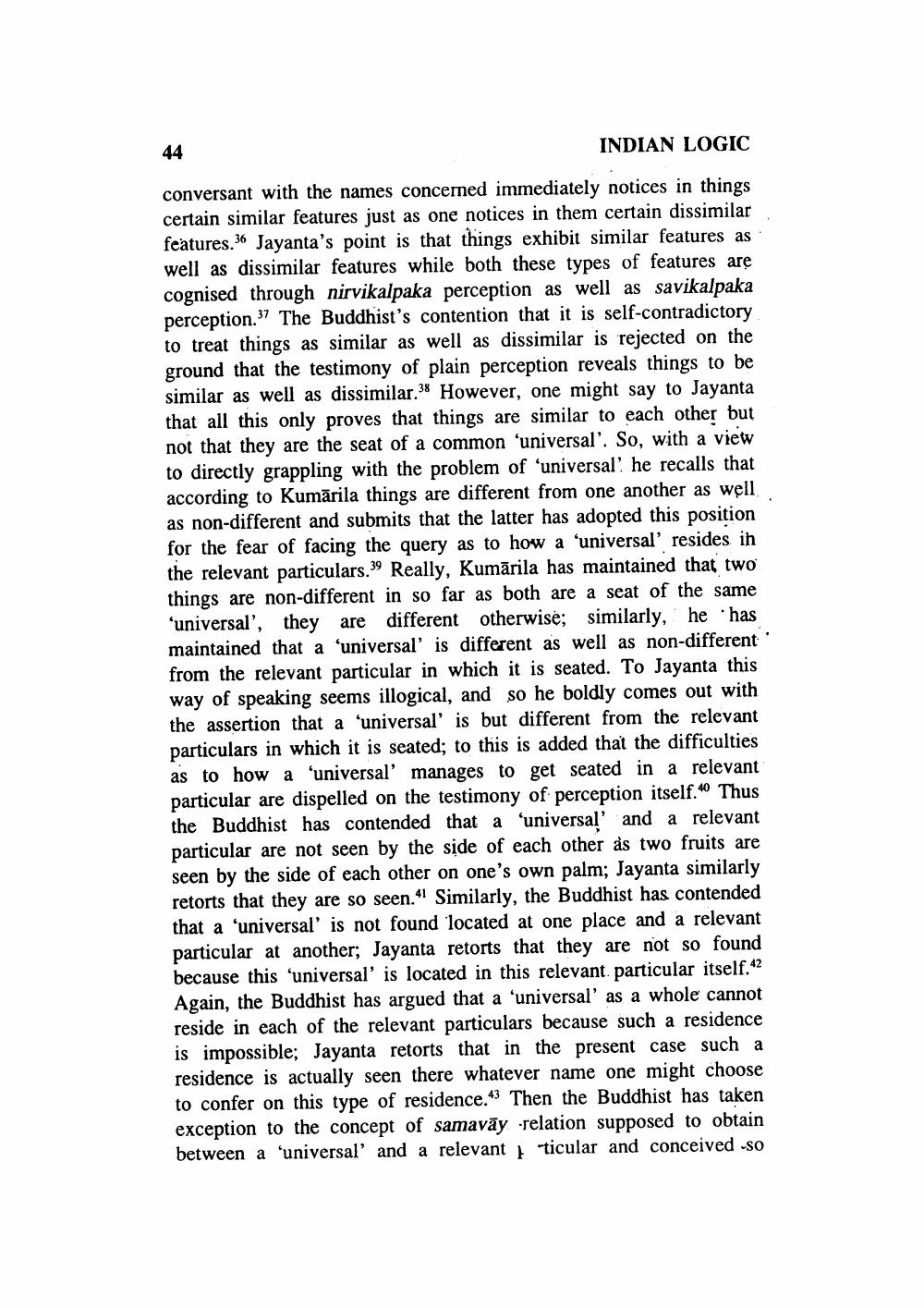________________
44
INDIAN LOGIC
conversant with the names concerned immediately notices in things certain similar features just as one notices in them certain dissimilar features. 36 Jayanta's point is that things exhibit similar features as well as dissimilar features while both these types of features are cognised through nirvikalpaka perception as well as savikalpaka perception. The Buddhist's contention that it is self-contradictory to treat things as similar as well as dissimilar is rejected on the ground that the testimony of plain perception reveals things to be similar as well as dissimilar.38 However, one might say to Jayanta that all this only proves that things are similar to each other but not that they are the seat of a common 'universal'. So, with a view to directly grappling with the problem of 'universal? he recalls that according to Kumārila things are different from one another as well as non-different and submits that the latter has adopted this position for the fear of facing the query as to how a 'universal' resides in the relevant particulars.39 Really, Kumārila has maintained that two things are non-different in so far as both are a seat of the same ‘universal', they are different otherwise; similarly, he has maintained that a 'universal' is different as well as non-different from the relevant particular in which it is seated. To Jayanta this way of speaking seems illogical, and so he boldly comes out with the assertion that a 'universal' is but different from the relevant particulars in which it is seated; to this is added that the difficulties as to how a 'universal' manages to get seated in a relevant particular are dispelled on the testimony of perception itself.40 Thus the Buddhist has contended that a 'universal' and a relevant particular are not seen by the side of each other as two fruits are seen by the side of each other on one's own palm; Jayanta similarly retorts that they are so seen.“ Similarly, the Buddhist has contended that a 'universal' is not found located at one place and a relevant particular at another; Jayanta retorts that they are not so found because this 'universal' is located in this relevant particular itself.42 Again, the Buddhist has argued that a 'universal' as a whole cannot reside in each of the relevant particulars because such a residence is impossible; Jayanta retorts that in the present case such a residence is actually seen there whatever name one might choose to confer on this type of residence.43 Then the Buddhist has taken exception to the concept of samavāy relation supposed to obtain between a 'universal' and a relevant ticular and conceived so




